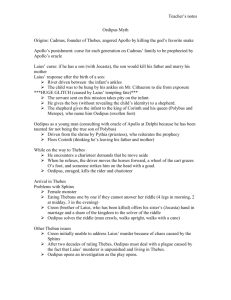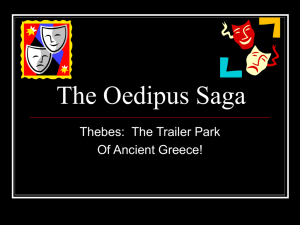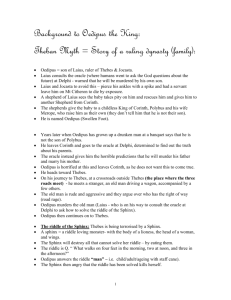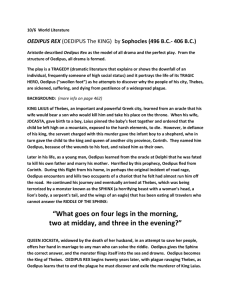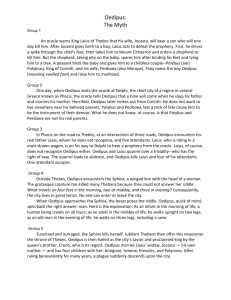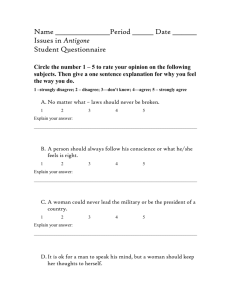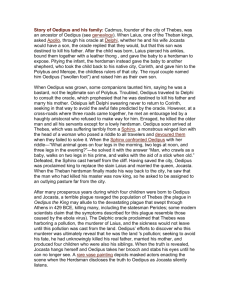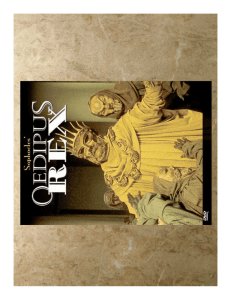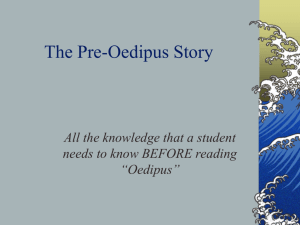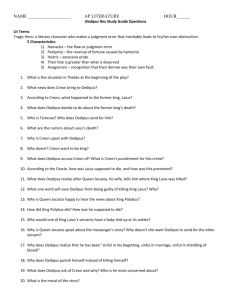Oedipus Rex: on Fate and Dramatic Irony
advertisement
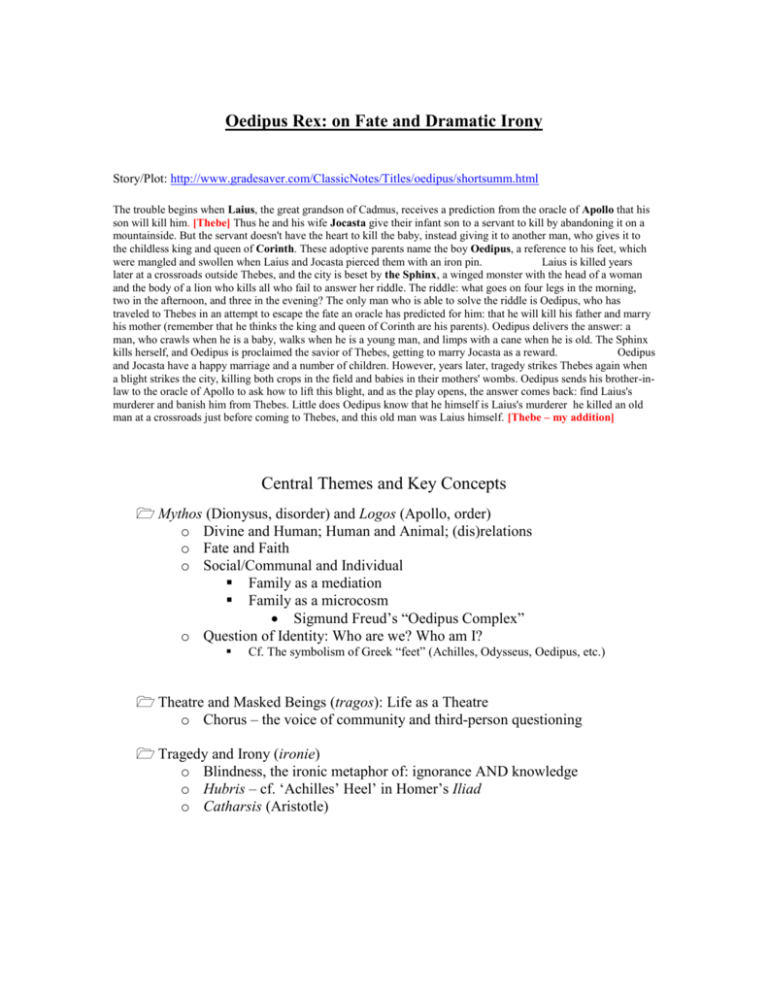
Oedipus Rex: on Fate and Dramatic Irony Story/Plot: http://www.gradesaver.com/ClassicNotes/Titles/oedipus/shortsumm.html The trouble begins when Laius, the great grandson of Cadmus, receives a prediction from the oracle of Apollo that his son will kill him. [Thebe] Thus he and his wife Jocasta give their infant son to a servant to kill by abandoning it on a mountainside. But the servant doesn't have the heart to kill the baby, instead giving it to another man, who gives it to the childless king and queen of Corinth. These adoptive parents name the boy Oedipus, a reference to his feet, which were mangled and swollen when Laius and Jocasta pierced them with an iron pin. Laius is killed years later at a crossroads outside Thebes, and the city is beset by the Sphinx, a winged monster with the head of a woman and the body of a lion who kills all who fail to answer her riddle. The riddle: what goes on four legs in the morning, two in the afternoon, and three in the evening? The only man who is able to solve the riddle is Oedipus, who has traveled to Thebes in an attempt to escape the fate an oracle has predicted for him: that he will kill his father and marry his mother (remember that he thinks the king and queen of Corinth are his parents). Oedipus delivers the answer: a man, who crawls when he is a baby, walks when he is a young man, and limps with a cane when he is old. The Sphinx kills herself, and Oedipus is proclaimed the savior of Thebes, getting to marry Jocasta as a reward. Oedipus and Jocasta have a happy marriage and a number of children. However, years later, tragedy strikes Thebes again when a blight strikes the city, killing both crops in the field and babies in their mothers' wombs. Oedipus sends his brother-inlaw to the oracle of Apollo to ask how to lift this blight, and as the play opens, the answer comes back: find Laius's murderer and banish him from Thebes. Little does Oedipus know that he himself is Laius's murderer he killed an old man at a crossroads just before coming to Thebes, and this old man was Laius himself. [Thebe – my addition] Central Themes and Key Concepts Mythos (Dionysus, disorder) and Logos (Apollo, order) o Divine and Human; Human and Animal; (dis)relations o Fate and Faith o Social/Communal and Individual Family as a mediation Family as a microcosm Sigmund Freud’s “Oedipus Complex” o Question of Identity: Who are we? Who am I? Cf. The symbolism of Greek “feet” (Achilles, Odysseus, Oedipus, etc.) Theatre and Masked Beings (tragos): Life as a Theatre o Chorus – the voice of community and third-person questioning Tragedy and Irony (ironie) o Blindness, the ironic metaphor of: ignorance AND knowledge o Hubris – cf. ‘Achilles’ Heel’ in Homer’s Iliad o Catharsis (Aristotle)
